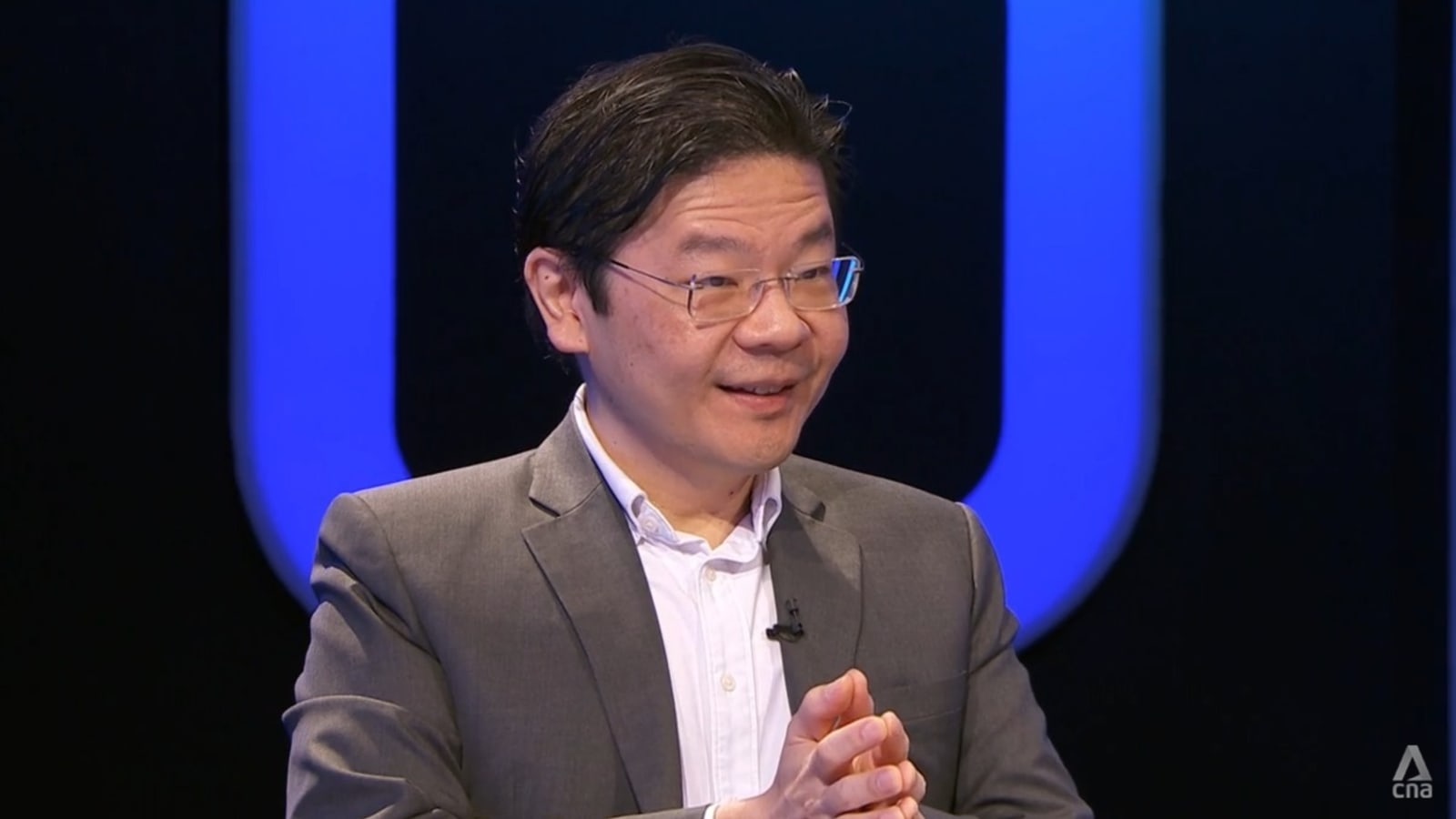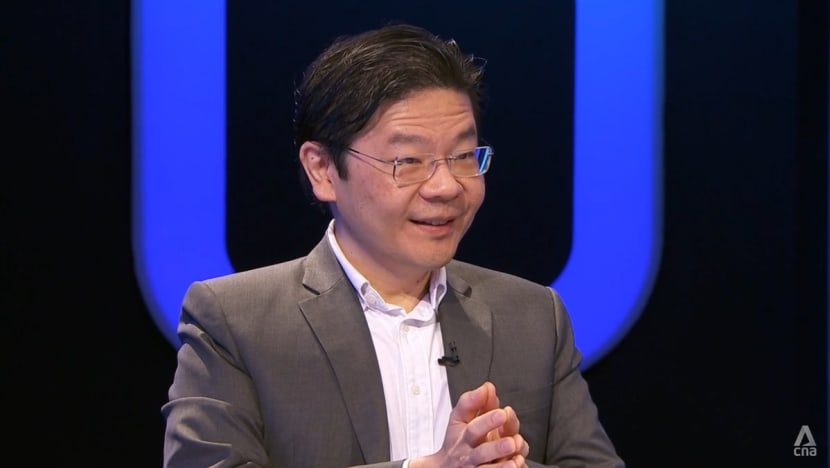
Advertisement
“Retirement adequacy is a very important issue and if we don’t start building up for our retirement, we are storing up more problems for ourselves and for society,” said the Deputy Prime Minister.

Deputy Prime Minister and Finance Minister Lawrence Wong fields questions from six Singaporeans on the Singapore Budget in Ask the Finance Minister 2023.
SINGAPORE: The Central Provident Fund (CPF) salary ceiling should keep pace with inflation to avoid “storing up more problems” for Singapore, said Deputy Prime Minister Lawrence Wong.
Responding to a question on the Ask The Finance Minister programme on CNA on Friday night (Feb 17), Mr Wong said he understood why the raised CPF salary ceiling is a concern for employers and individuals.
“But we also need to look at the long term. Retirement adequacy is a very important issue and if we don’t start building up for our retirement, we are storing up more problems for ourselves and for society,” he added.
“And really the CPF salary ceiling ought to be keeping pace with inflation. That’s the right way to think about this. It can’t be that we set the salary ceiling at S$6,000 and forever it doesn’t change.”
The CPF monthly salary ceiling will be increased in stages from S$6,000 to S$8,000 by 2026, Mr Wong announced in his Budget speech on Tuesday.
The increase will be phased in over four years starting in September this year.
Mr Wong said the move was to “keep pace with rising salaries” and would help middle-income Singaporeans save more for their retirement.
From September 2023, the CPF monthly salary ceiling will go up by S$300 to S$6,300. It will rise to S$6,800 from January 2024, S$7,400 from January 2025 and S$8,000 from January 2026.
Wages and prices are increasing, and Singapore should keep pace with inflation, said Mr Wong, who is also Finance Minister.
But the Government recognises that this is not a good time to raise the CPF salary ceiling, he stressed.
This is why it decided to phase the increase in over four years, to manage the overall impact, said Mr Wong.
Currently, employees aged up to 55 years old contribute 20 per cent of their wages to their CPF, while employers contribute 17 per cent.
The rise in the monthly salary ceiling means that workers who earn more than S$6,000 – and their employers – will have to contribute more to their CPF. The change will not affect people earning monthly salaries below the ceiling.
The changes will also take a toll on businesses’ manpower costs, associations said.
The pressures on this front are already piling up with the rise in foreign worker levies, local qualifying salaries and wage adjustments under the Progressive Wage Model, said the Singapore Business Federation, which represents 27,000 companies.
TAKING SKILLSFUTURE FURTHER
The Government also wants to take SkillsFuture to a higher gear, said Mr Wong.
In his Budget speech, Mr Wong announced that job-skills integrators will be appointed to work with industry, training and employment facilitation partners to optimise training and job placement.
This is “just one step”, and the Government is considering how to take the SkillsFuture to the next level, including support for mature workers.
Singapore’s economy will continue to grow, but the growth will pose challenges from the individual’s point of view, because jobs will change, said Mr Wong.
“There will be growth, there will be opportunities, but I cannot guarantee that it will be the same job, and that means that the individual has to be prepared to invest in skills upgrading, employers have to be prepared to do so,” he said, stressing the importance of the SkillsFuture scheme.
PROGRESSIVE WAGES
Responding to a question about whether progressive wages can help workers adapt or want to improve so that they climb up the income ladder, Mr Wong said that matching the job to an individual’s passion and abilities was also important.
“If they find a good fit, hopefully they will feel engaged, they will keep on learning and progressive wages will help tremendously because the whole idea of progressive wages is to help them reskill, upskill, along the career ladder and their wages keep on going up,” he added.
Mr Wong raised the example of lift technicians. A few years ago, the starting salary for a lift technician was S$1,300, which is “too low”, he noted.
With progressive wages, the starting salary is now S$1,800, and the Government is aiming to raise it to S$2,000, he added.
“But it’s not simply a matter of saying, just raise the wages, because we are training the lift technician with better skills and making them more effective at their work, so that when the consumers, when residents pay more, because when wages go up, the cost of servicing the lift must go up,” said the Deputy Prime Minister.
“But when you pay more, you feel assured that you are also getting better service and hopefully your lifts will break down less frequently.”
While it is very important that workers earn a decent salary, “a lot of it comes down to mindset”, said Mr Wong.
“It also comes down to how society appreciates and and values every individual for the work that they do and for who they are. And it’s for all of us to change our mindsets.”


